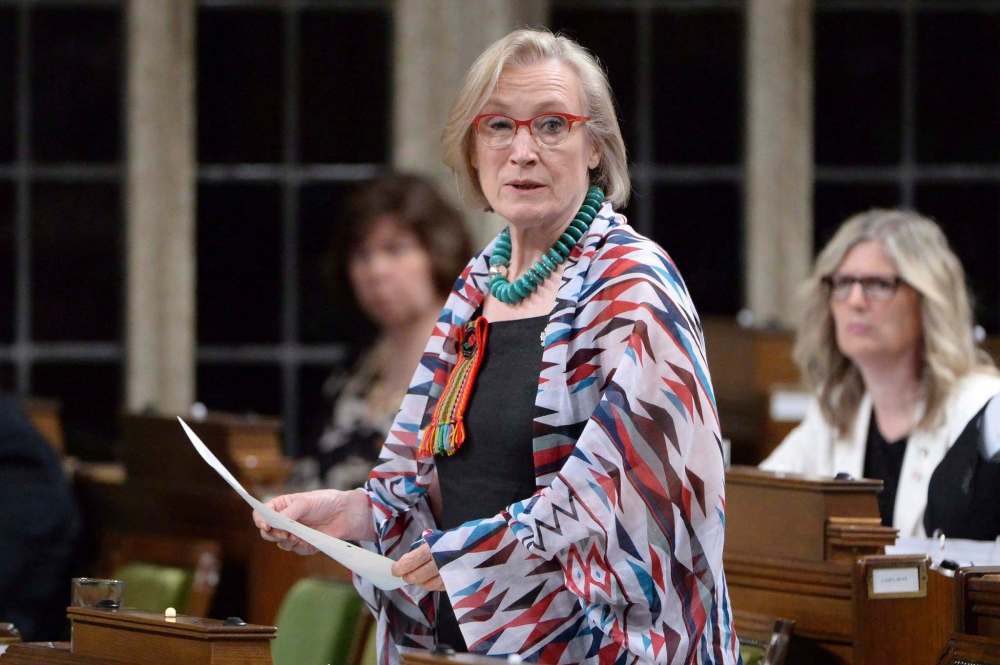State of apologies in Canada
Advertisement
Read this article for free:
or
Already have an account? Log in here »
To continue reading, please subscribe:
Monthly Digital Subscription
$0 for the first 4 weeks*
- Enjoy unlimited reading on winnipegfreepress.com
- Read the E-Edition, our digital replica newspaper
- Access News Break, our award-winning app
- Play interactive puzzles
*No charge for 4 weeks then price increases to the regular rate of $19.00 plus GST every four weeks. Offer available to new and qualified returning subscribers only. Cancel any time.
Monthly Digital Subscription
$4.75/week*
- Enjoy unlimited reading on winnipegfreepress.com
- Read the E-Edition, our digital replica newspaper
- Access News Break, our award-winning app
- Play interactive puzzles
*Billed as $19 plus GST every four weeks. Cancel any time.
To continue reading, please subscribe:
Add Free Press access to your Brandon Sun subscription for only an additional
$1 for the first 4 weeks*
*Your next subscription payment will increase by $1.00 and you will be charged $16.99 plus GST for four weeks. After four weeks, your payment will increase to $23.99 plus GST every four weeks.
Read unlimited articles for free today:
or
Already have an account? Log in here »
Hey there, time traveller!
This article was published 19/08/2016 (3362 days ago), so information in it may no longer be current.
During the past several decades there has been an avalanche of apologies from national governments for wrongdoing: the Second World War internment of Japanese in both Canada and the United States, apartheid in South Africa, Japanese war crimes, the stolen generations of Australian Aboriginals, the potato famine in Ireland.
Politicians have stood, with great solemnity, to say they were sorry, seek forgiveness and, in some cases, provide compensation for historical wrongdoing.
Earlier this month, it was announced the Trudeau government is considering a national apology for people who were imprisoned, fired from jobs or persecuted because of their sexual orientation. The government is reportedly working with Egale — a national LGBTTQ* human rights organization — on the details and scope of such an apology, which is expected to come as early as this autumn.

This week, over a three-day period, the Canadian government apologized for the relocation of Manitoba’s Sayisi Dene First Nation people 60 years ago.
Indigenous and Northern Affairs Minister Carolyn Bennett delivered the long-overdue apology Tuesday, first in Tadoule Lake and then in Churchill, where 250 Sayisi Dene were forced to relocate in 1956 under horrific conditions. On Wednesday, Ms. Bennett apologized again at the Canadian Museum for Human Rights in Winnipeg. Along with the apology, the Liberal government has announced a $33.6-million compensation fund to be invested in a trust and 13,000 acres of land at Little Duck Lake.
This comes nearly a decade after the formal apology in 2008 by then-prime minister Stephen Harper to the 80,000 former students (and their families) who were victims of the residential school system. Another apology came in 2015 when the final report of the Truth and Reconciliation Commission was provided to Prime Minister Justin Trudeau, who said Canada accepts its failure in caring for thousands of aboriginal children sent to residential schools, where many endured physical and sexual abuse.
Canadians have a national government that can apologize — and for that, it shouldn’t be sorry. Formal apologies can go a long way in restoring trust in government institutions, but they need to be more than just performance. They need to go beyond economic redress to a firm commitment such behaviour will not continue.
Ask people in South Africa about the apology and reconciliation attempts made in the years following apartheid. Nearly three decades after the national apology in 1997 and the establishment of that country’s Truth and Reconciliation Commission, critics say little has been done to change the conditions for black South Africans, who are still underemployed and more likely than white South Africans to live in poverty.
In Canada, the same can be said of indigenous people who still live in Third World conditions on reserves and struggle with poor education and health care. Or young aboriginal adults such as Tina Fontaine, 15, whose body was found in the Red River two years ago. Or Colten Boushie, who entered a farmer’s yard north of Biggar, Sask., reportedly seeking help for a flat tire and was shot and killed. The racist comments on social media following the 22-year-old’s death Aug. 9 prompted Saskatchewan Premier Brad Wall and the National Farmers Union to issue statements condemning the hate-filled postings.
For those families, and for those coping with the aftermath of colonization, sorry won’t cut it for long.





